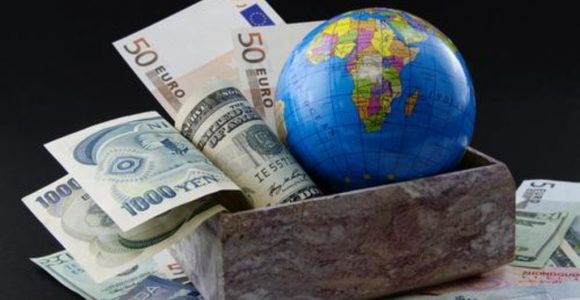It is difficult to escape a sense of trouble ahead for the global economy

Back in the summer of 2008 Alistair Darling, chancellor of the exchequer, said that Britain’s economic conditions were “arguably the worst they have been for 60 years”. Pundits lined up to attack his “gaffe” and “basic ignorance of economic facts and figures” but he was right. The collapse of Lehman Brothers weeks later sparked financial panic and a bitter recession: output, trade volumes and asset prices fell sharply. It would have been worse if central banks hadn’t flooded the system with liquidity and governments hadn’t bailed out the banks and allowed budget deficits to rise.
So I’m aware of the potential for ribaldry but will stick to the assessment anyway if I adapt Lord Darling of Roulanish’s comment for 2017. The global economy faces risks unlike any since the 1930s. As a medium-sized, open economy seeking a new place in the international trading system, Britain is peculiarly vulnerable. For the world economy to withstand the dangers, let alone prosper, in the medium term requires a lot to go right. But a lot is going wrong.
Critics of Lord Darling’s assessment contrasted his gloom with the disasters of the 1970s. And yes, things were very bad then. The postwar era of growth, full employment and stable prices ended. In 1974 and 1975, industrial output fell by 10 per cent in the advanced economies. By the end of 1974, the US stock market was half the level it had been two years earlier. Inflation of 26 per cent in Britain savagely eroded living standards. The global financial system suffered the biggest bank failures since the 1930s (Franklin National Bank in the US and Bankhaus Herstatt in Germany).
Are things really shaping up to be that bad as we go into 2017? No: they’re worse. Let’s count the ways.
Throughout the postwar era, the United States has pushed for economic integration and an expansion of world trade. No longer. Next year the US will have an administration committed to trade protectionism. There is no worse policy for a global economy that has been struggling since the banking crash of 2007-09. Tariffs cut real incomes (by raising import prices) and divert scarce resources to inefficient uses. At the same time, President-elect Trump threatens to pack the Federal Reserve board with his own appointees regardless of their understanding of the central bank’s mandate of price stability and full employment.
China has been the engine of global growth for 20 years. There is no inherent reason why its slowing growth, as it moves from a model based on domestic consumption rather than manufacturing for export, should be a risk to the world economy. But China has a problem with corporate debt. The IMF estimates that from 2009 to 2015, credit expanded by an average of 20 per cent a year, which is far more than growth in nominal GDP. The ratio of non-financial private credit to GDP rose from about 150 per cent to more than 200 per cent in that period. Perhaps it’s manageable but a sharp deleveraging is a big risk to global growth.
Meanwhile, Europe contends with the shock of Brexit. There are no easy answers. EU member states have a political incentive to make it hard for the UK to negotiate good terms for leaving. The uncertainty about Britain’s relations with the single market will put a brake on investment in the UK. The highly skilled foreign workers that Britain’s growth sectors need will be deterred from coming. Finally, important emerging markets have big problems. Brazil is in steep recession and political crisis. Turkey has a huge current-account imbalance and burgeoning problem of short-term debt.
Things may go moderately well for the global economy in 2017. The greater likelihood is that they’ll go badly wrong.


